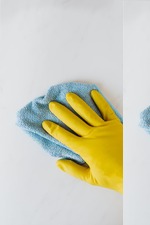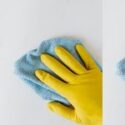
30 Nov Housework Associated with Better Physical and Mental Function in Elderly
MedicalResearch.com Interview with:

Dr. Shiou Liang
Wee Shiou Liang, PhD
Associate Professor | Health and Social Sciences, Singapore Institute of Technology
Faculty | Geriatric Education and Research Institute
Singapore
MedicalResearch.com: What is the background for this study?
Response: This study was funded by Singapore’s Ministry of Health Geriatric Education and Research Institute.
We randomly recruited 500+ adults aged 21-90+ from the residential town of Yishun. We performed detailed assessments of physical and cognitive performance, body composition using DEXA, and participants also provided information on their levels and frequencies of physical activities (PA) including recreational PA/exercise, commuting, housework and other occupational related PA. The demographics of the sample of participants is the same as that of Singapore in terms of age and ethnic composition. Comparing the results of those aged 21-<65 and those >=65 years, only around a third (36%; 90) of those in the younger group and only around half (48%;116) of those in the older age group, met guidelines recommended physical activity quota exclusively from recreational PA/exercise. But nearly two thirds (61% younger; 152 and 66% older; 159) met this target exclusively through housework.
MedicalResearch.com: What are the main findings?
Response: After adjusting for other types of regular physical activities, the results showed that housework was associated with sharper mental abilities and better physical capacity. But only among the older age group. Cognitive scores were 8% and 5% higher, respectively, in those doing high volumes of light or heavy housework compared with those in the low volume groups. And the intensity of housework was differentially associated with specific cognitive domains. Specifically, heavy housework was associated with a 14% higher attention score while light housework was associated with 12% and 8% higher short and long term memory scores, respectively.
Similarly, sit-to-stand time and balance/coordination scores were 8% and 23% faster, respectively, in the high volume group than they were in the low volume group. Those in the younger age group had five more years of education on average than their older counterparts. And since education level is positively associated with baseline mental agility and slower cognitive decline, this might explain the observed differences in the impact of housework between the two age groups.
MedicalResearch.com: What should readers take away from your report?
 Response: This is an observational study, and as such, can’t establish cause. The study relied on subjective reporting of physical activity levels and the volume and intensity of household chores. Together with earlier research findings, our results suggest that the higher cognitive, physical and sensorimotor functions related to heavy housework activities might plausibly be associated with lower physiological fall risk among community-dwelling older adults. Incorporating physical activity into daily lifestyle through domestic duties (ie, housework) has the potential to achieve higher physical activity, which is positively associated with functional health, especially among older community-dwelling adults. Housework is a purposeful activity, is part of the routine for some older people, and probably some also enjoy it as part of life.
Response: This is an observational study, and as such, can’t establish cause. The study relied on subjective reporting of physical activity levels and the volume and intensity of household chores. Together with earlier research findings, our results suggest that the higher cognitive, physical and sensorimotor functions related to heavy housework activities might plausibly be associated with lower physiological fall risk among community-dwelling older adults. Incorporating physical activity into daily lifestyle through domestic duties (ie, housework) has the potential to achieve higher physical activity, which is positively associated with functional health, especially among older community-dwelling adults. Housework is a purposeful activity, is part of the routine for some older people, and probably some also enjoy it as part of life.
MedicalResearch.com: What recommendations do you have for future research as a result of this work?
Response: Future research can include longitudinal studies on the relationship of different physical activities including housework and health in younger and older adults. It can also seek to better understand the reasons and motivations behind different physical activity patterns of older adults.
Citation:
Lee SY, Pang BWJ, Lau LK, et al
Cross-sectional associations of housework with cognitive, physical and sensorimotor functions in younger and older community-dwelling adults: the Yishun Study
BMJ Open 2021;11:e052557. doi: 10.1136/bmjopen-2021-052557
JOIN OUR EMAIL LIST
[mailpoet_form id="5"]We respect your privacy and will never share your details.
[last-modified]
The information on MedicalResearch.com is provided for educational purposes only, and is in no way intended to diagnose, cure, or treat any medical or other condition. Always seek the advice of your physician or other qualified health and ask your doctor any questions you may have regarding a medical condition. In addition to all other limitations and disclaimers in this agreement, service provider and its third party providers disclaim any liability or loss in connection with the content provided on this website.
Last Updated on November 30, 2021 by Marie Benz MD FAAD
